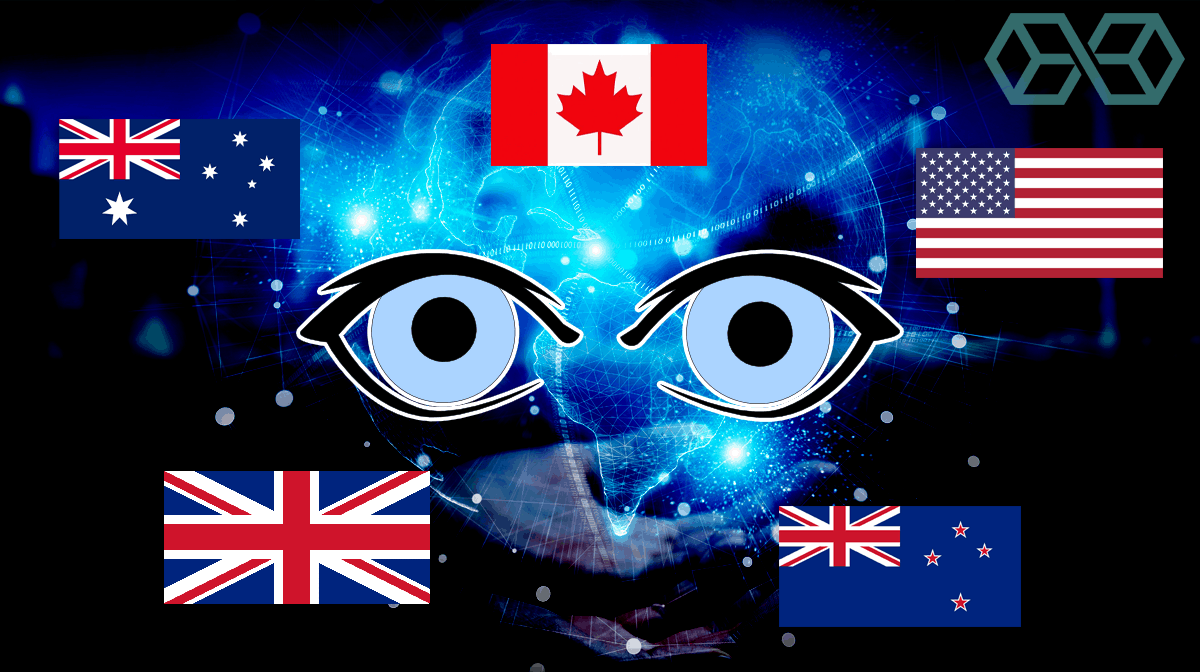Each One Teach One: Five Eyes
What is the Five Eyes?
The Five eyes is the most significant intelligence alliance with an intricate web of global intelligence, and a covert club of members like the United States, United Kingdom, Canada, Australia, and New Zealand. It is widely regarded as the "gold standard for intelligence alliances."Origins and Secretiveness
The five eyes stems back from World War 2, where the US and the UK formed an agreement to share intelligence to help against fighting the Axis Powers. This alliance then persisted after the war ended and through the cold war until today, however it now includes Canada (joined in 1948), Australia, and New Zealand (both joined in 1956).The original document was only 7 pages long, but it was revised and added to several times between 1946 and 1955 when the new agreement was enacted. The most recent version of the agreement has not been declassified.
The nickname Five Eyes is a shorthand derived from the stamp intelligence documents would have on them that marked them as only for the Five Eyes. The stamp read, “TOP SECRET- AUS/CAN/NZ/UK/US EYES ONLY.”
The alliance is heavily secret and covert, and as such it wasn't even known of by the prime minister of Australia, George Whitlam until 1973. The public also didn't know of it until 2005, and the full text of the original agreement from 1946 wasn't released to the public until 2010.
Five Eyes
Relationships
The Five Eyes alliance held a very important factor the many relationships, not only between the members of the alliance, but also some outside of it.Most important to note is that the alliance helped forge trust and the basis for a stronger cooperation between the UK and US during the Cold War.
However, the five eyes has also cooperated with countries like Denmark, France, Norway, and the Netherlands (all of which are considered a part of the "Nine Eyes"). The fourteen eyes also exists, which includes everyone in the Nine Eyes plus Belgium, Germany, Italy, Spain and Sweden.
That said, the "Fourteen Eyes" official name is SIGINT Seniors Europe (SSEUR) and the primary objective is to coordinate the exchange of military signals, which is a lot more specific in comparison to the five eyes surveillance which is mainly for national security.
Responsibilities
Each country in the five eyes is responsible for monitoring a specific portion of the world, as shown in the map below.
Britain monitors Europe, Western Russia, Middle East, and Hong Kong. United States monitors the Middle East as well, China, Russia, Africa, and the Caribbean. Australia is responsible for South and East Asia. New Zealand's territory is the South Pacific and Southeast Asia. Canada's is the interior of Russia, China, and parts of Latin America.
However, note that most information gathered actually comes from multiple members and as such helping each other is essential in this alliance. In fact, sometimes people have trouble telling where the information came from because of the great cooperation and just conclude that it came from the five eyes. This was why it was so detrimental that New Zealand refused to share information to the five eyes for decades.
Finally, the other responsibility the countries have is part of the deal itself. The Five Eyes alliance revolves around a deal that is broken down into two parts: products and methods. Basically, the alliance agreed to share not only the information they gathered (the product), but also how they collected said intelligence (methods and techniques).
In turn, this has led to an unprecedented era of surveillance and information sharing that continues to shape the world’s approach to national security.
Downsides
Now, the five eyes has downsides too, it's not all rainbows and roses here. For one, the development of technology has been a problem for the Five eyes, especially encryption. Members are unsure of whether the privacy for citizens outweighs potential security threats they could discover by accessing this encryption.
As such, the intelligence network is a double-edged sword. It enables governments to have the power to uphold national security, but it also allows for the loss of personal privacy.
This was heavily demonstrated in 2013 with Snowden's (shown to the right) whistleblowing that revealed extensive data harvesting activities of the alliance. Not to mention that data breaches of information such as this continue to pose a disadvantage to the five eyes because the alliance is founded on deep trust.While the Five Eyes alliance certainly plays a crucial role in global security, it’s equally important to remember that privacy forms a cornerstone of democratic societies. As such, the alliance’s activities highlight the need for a delicate balance between security and individual rights—a balance that remains a significant topic of ongoing debates.
However, it is up to you to decide if potentially sacrificing your personal privacy to stop over fifty terror attacks in the US and abroad is worth it.







No comments:
Post a Comment